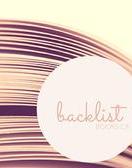 Earlier this week I went to see the movie adaptation of one of my favorite books. A book that had a deepest emotional impact on me while also making me laugh harder than many more comedic novels I've picked up. This movie, as you all know, was The Fault In Our Stars. Which just happens to be based on a book written for young adults.
Earlier this week I went to see the movie adaptation of one of my favorite books. A book that had a deepest emotional impact on me while also making me laugh harder than many more comedic novels I've picked up. This movie, as you all know, was The Fault In Our Stars. Which just happens to be based on a book written for young adults.Cut to the next day, when I came across an article published on the Slate website by Ruth Graham, "Against YA." I, along with much of the blogging world I follow, was deeply offended by some of the opinions expressed therein. After reading it I tried to form thoughts coherent enough to distill into one or two Tweets. Obviously, I couldn't.
But I also found that by the next day, and the day after that, and the day after that, I was still thinking about it. So I decided to write a post which constitutes my opinion on both the young adult genre, and reading it as an adult. Here are my thoughts.
------
I've decided the best way to get into a discussion without losing myself on a tangent is to pick apart the article and sort out what bothered me one piece at a time. So here goes. Italics are quotes from the article. My responses follow.
"[R]eading YA doesn’t make for much of a confession these days: A 2012 survey by a market research firm found that 55 percent of these books are bought by people older than 18. [...] The largest group of buyers in that survey—accounting for a whopping 28 percent of all YA sales—are between ages 30 and 44. [...] That has kept me bashful about expressing my own fuddy-duddy opinion: Adults should feel embarrassed about reading literature written for children."
First of all, you can't track YA readers by who buys the books. This should be fairly obvious. People in their 30s and 40s sometimes have kids (or nieces or nephews or kids belonging to friends) in their teens. And because adults generally like to encourage kids to read, and because kids don't usually want to spend their money on books (unless they're weirdos like me), adults buy books for them. So you really can't determine that just because 28% of young adult books are sold to people between 30-44, that 28% of those books are necessarily read by them. As to the final assertion... well, that's what this whole post is about.
"These are the books that could plausibly be said to be replacing literary fiction in the lives of their adult readers. And that’s a shame."
This is just silly. When I was a teenager I read books for adults as much as (if not more than) books for young adults. The same is still true. I also suspect that YA books encourage some who otherwise wouldn't read anything to give books a try. Perhaps even to venture outside of the YA genre eventually to pick up some "literary fiction" that would live up to Graham's standards.
"But even the myriad defenders of YA fiction admit that the enjoyment of reading this stuff has to do with escapism, instant gratification, and nostalgia. As the writer Jen Doll, who used to have a column called “YA for Grownups,” put it in an essay last year, 'At its heart, YA aims to be pleasurable.'"
Yeah, so? I'd venture that most people who read literary fiction also find it enjoyable and it frequently involves escapism, instant gratification and nostalgia.
"[C]rucially, YA books present the teenage perspective in a fundamentally uncritical way. It’s not simply that YA readers are asked to immerse themselves in a character’s emotional life—that’s the trick of so much great fiction—but that they are asked to abandon the mature insights into that perspective that they (supposedly) have acquired as adults."
In my experience, YA books are written with less verbal complexity than adult books, and their protagonists are younger. But that doesn't necessarily mean that they lack maturity. They are, by and large, written by adults, after all. And age isn't necessarily a fair measure of maturity; experience is. Take Anne Frank, for example - she died as a teenager, and yet her book is neither classified as or read by young adults exclusively. Nor is it torn down as being "immature."
I've encountered some annoyingly immature YA protagonists, but I've also encountered some who, despite their dearth of years lived, are more mature than people I've met who are in their early 20s. Possibly even some in their early 30s.
To claim that all books written for teenagers are lacking in maturity, perspective and complexity is to do not only the books, but the authors and readers a disservice.
"Most importantly, these books consistently indulge in the kind of endings that teenagers want to see, but which adult readers ought to reject as far too simple. YA endings are uniformly satisfying, whether that satisfaction comes through weeping or cheering. [...] These endings are for readers who prefer things to be wrapped up neatly, our heroes married or dead or happily grasping hands, looking to the future. But wanting endings like this is no more ambitious than only wanting to read books with “likable” protagonists."
Have you even read any young adult books? Serious question. This can sometimes be the case, sure. But it can also be the case in entire sub-genres of literary fiction - even in books that would be considered complex and challenging classics. And generally a satisfying ending is important for any book - be it literary fiction, classic literature, young adult, children's books, or even non-fiction. But there is as much variation in what this constitutes in young adult books as there is in literary fiction. Sometimes it can be too neatly tied up - but the same can be said for adult fiction (this was my experience with The Rosie Project, for example - a book I nonetheless loved). Other times the book ends with pain, heartbreak, even a sense of how unfair life can be.
"Fellow grown-ups, at the risk of sounding snobbish and joyless and old, we are better than this. I know, I know: Live and let read. Far be it from me to disrupt the “everyone should just read/watch/listen to whatever they like” ethos of our era. There’s room for pleasure, escapism, juicy plots, and satisfying endings on the shelves of the serious reader. And if people are reading Eleanor & Park instead of watching Nashville or reading detective novels, so be it, I suppose. But if they are substituting maudlin teen dramas for the complexity of great adult literature, then they are missing something."
Okay, wait wait wait. So Eleanor & Park, which is a beautifully-written story dealing with social stratification, domestic abuse, racism and various other social issues (and that doesn't have a "uniformly satisfying" ending) is being lumped in with Nashville, a show that is essentially about the love lives of country music stars (I love it, but come on)?
Yeah, I give up. This is just silly.
------
I can't keep refuting an article that, in my opinion is as ludicrous as it is thinly-researched. But it has got me thinking about the whole context of adults reading young adult books. So I've got a few more things I'd like to say.
Just because a book is written for adult audiences does not make it literature. There are many (most notably - and this is just my own opinion - books like 50 Shades of Grey) that I consider to be not only lacking in substance, but badly written when compared to many of the YA books I've read and enjoyed.
Then there are books that have done what I think literature should - they've impacted me emotionally, they've made me look at the world around me slightly differently, they've introduced me to a set of life experiences outside of my own, they've introduced me to characters that felt so real as to jump right off the page, they've had me re-reading and highlighting beautifully-written passages, and they've left a lasting mark on my psyche. That they were written with a teenaged audience in mind makes absolutely no difference to me - or to their literary value.
I also quibble with classifying books by age. There are so many cases where the age of the characters doesn't jive with the intended audience, or the audience ends up being completely different than who the book was originally written for. Look at Alice in Wonderland, which I believe was basically written as one long drug trip, and definitely not as a children's book. And yet it has become one of the most beloved children's books of all time. It is also, in my opinion (and the opinion of much of the literary world) an example of outstanding literary fiction. Or J.D. Salinger's The Catcher In the Rye, written about a teenage protagonist but a modern classic and example of incredible literary ability. Even a book I only recently read, The Outsiders, which was not only written for teenagers, but written by a teenager serves to exemplify the literary potential of teen, teen-authored, and teen-centric books.
The blurring of genre and audience lines is something I'm a huge fan of, and something I see as a great benefit to the reading community. Furthermore I see no valid reason that I should miss out on wonderful books like the Harry Potter series just because I happened to be "too old" for them by the time they were published. I don't think that would make me any better off in any respect.
So no, Ms. Graham, I shouldn't be ashamed for reading intelligent, poignant, well-written and thought-provoking books that just happen to have been written for teenagers. You, on the other hand, might want to read the genre more widely before making sweeping statements, and consider that your assertions really do just make you a snob. It's kind of embarrassing, actually.

